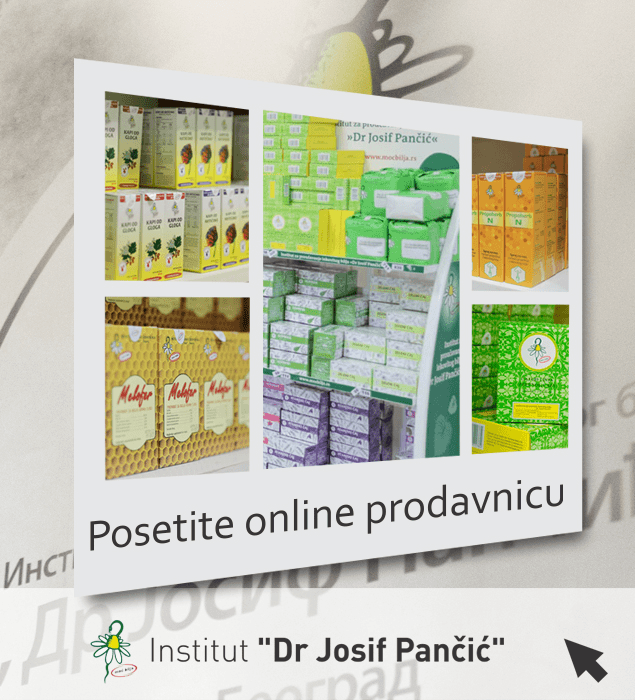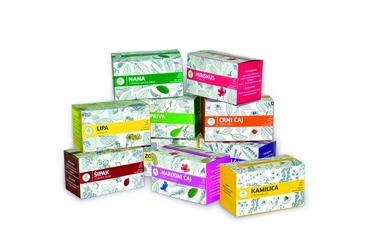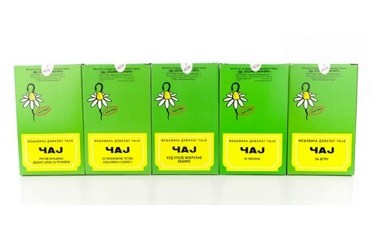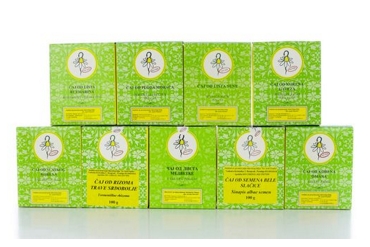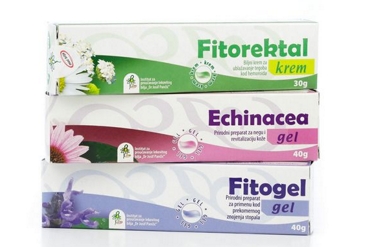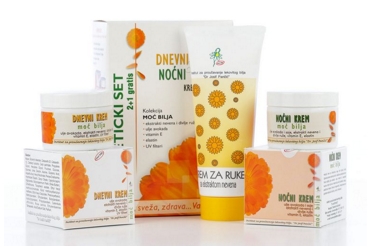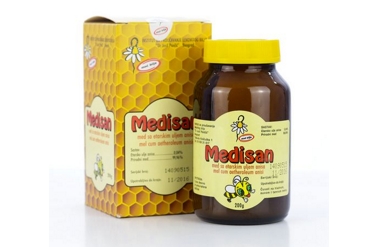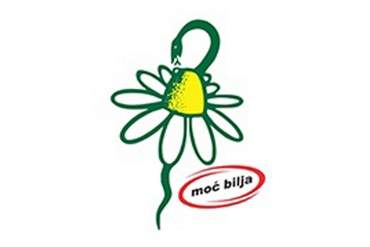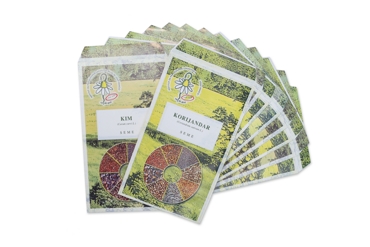Herbal drops (tinctures)
HERBAL DROPS
Clear, colored solutions, with the aroma and taste of the medicinal herbs from which they are prepared, tinctures, and oil extracts, along with teas, represent some of the oldest forms of herbal preparations still in use today. The term itself originates from the Latin word "tingoere," meaning "to dye," as tinctures contain chlorophyll and coloring substances extracted from plant material. Diluted ethanol or plant oils are used as extraction mediums.
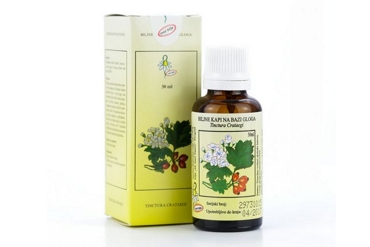
TINCTURES
Tinctures from our production program are made according to the Pharmacopoeia, which defines them as ethanol-water or water-ethanol extracts of plant materials. The maceration process is applied, with a ratio of 1:5, where four parts of ethanol of the prescribed concentration are used to extract one part of the plant material at the specified degree of fineness. The ethanol concentration depends on the properties of the active substances and their solubility in water or alcohol, as well as the solubility of inert (ballast) materials. The concentration of ethanol used for extraction is also influenced by the moisture content of the plant material. The Pharmacopoeia also specifies the ethanol content in the final product for each tincture, which must be adhered to in order to maintain product stability throughout the prescribed shelf life.
OIL EXTRACTS
St. John's Wort and marigold oil extracts are also produced through the maceration process. Fresh plant material is used for their production, and the extraction is carried out with plant oil of prescribed quality, in accordance with the requirements of the defined production process.
The production of tinctures and oil extracts complies with HACCP system requirements. As with other products of the Institute, each batch undergoes rigorous quality control before being released to the market, ensuring microbiological and health safety, as well as adherence to product specifications and legal regulations.

